Background:
As we've examined previously in the "M1 Carbine in Normandy" photo study - the I Cut Highwood stock for the M1 Carbine was the predominant style in use from the Carbine's initial use through Normandy.
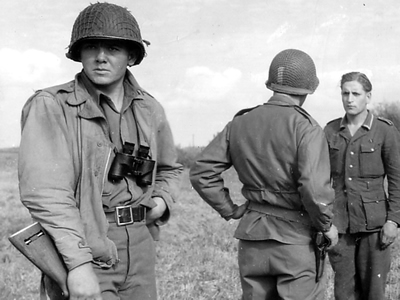
With the flood of M1 Carbines re-entering the country through the Civilian Marksmanship Program, the price of original wartime M1 Carbine stocks has skyrocketed.
Boyds, amongst several other companies have begun to produce new stocks for the M1 Carbine - particularly the I Cut Highwood variant. Dupage Trading occasionally carries these stocks - which happen to be factory defect / reject stocks from Boyds. These stocks are offered at a significantly discounted price when compared to Boyds retail price.
It must be noted that Dupage Trading does not advertise these stocks as "defective" or "rejects" on their website.
Ordering:
Ordered one of these "reject" buttstocks from the Dupage website. 90th IDPG members have previously ordered these stocks, and some had major cosmetic flaws, so I was interested to see just what I'd get. Shipping was via UPS ground, and ran $9, for a total of $69 shipped to KY. A stock-sized box arrived at my door around 4 days later.
|
The Reproduction:
Overall:
Opening the package, I found plenty of packing material and a faint odor of boiled linseed oil. This was clearly a new-made stock, not some return from a previous customer. But how did it look?
The stock had no blemishes or flaws that I could see. The slingwells were well formed, machine cut, and free from any visible defeat or flaw. The stock was the desirable I-cut slingwell type, found on most production through the end of 1943. This stock is also the "high wood" model, also the early type - the highwood stock appears by far to be the most common for a Normandy scenario.
I-cut
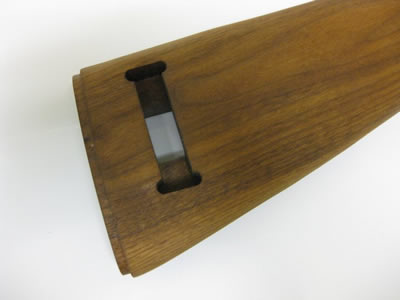
I-cut Detail
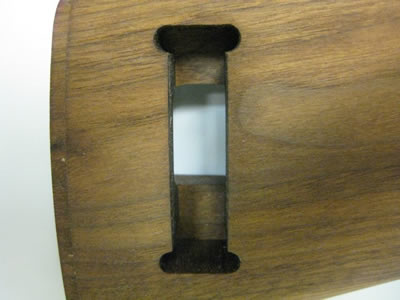
Slingwell

Slingwell Detail
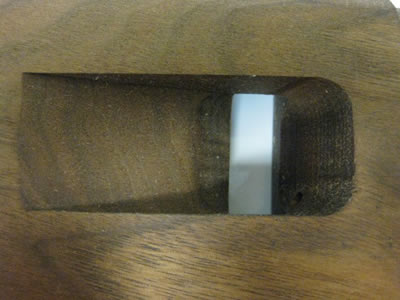
Moving forward, the buttstock, pistol grip, and forward areas are all correctly shaped. The front 3" behind the barrel band is slightly different than typically found, but still within expectable tolerances, so this does not overly detract from appearance and does not effect function. Left/right thickness is standard, allowing for the use of USGI handguards without a noticeable difference between the two. There is no M2 cutout, and the stock is externally unmarked, ready for reproduction cartouches.
Inletting
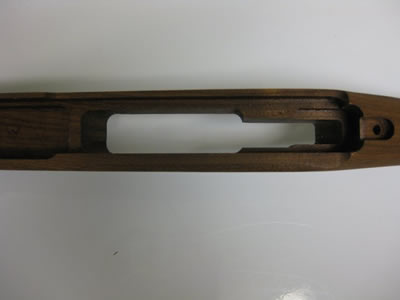
"Reject" Markings, "Boyd's" Marking, 2009 Production Date

"2" Marking in Barrel Channel
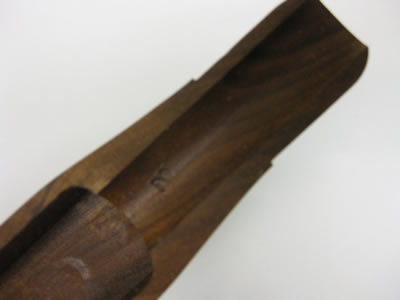
Highwood, Note Contours
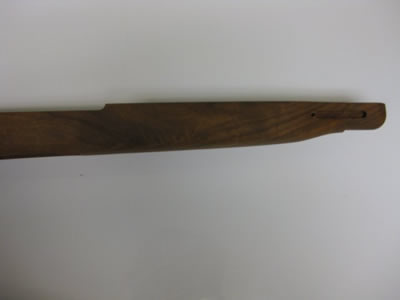
So what made this a "flawed" stock? I can't really say. It's so nice, the only blemish I can find is a small, closed knothole forward of the pistol grip.
The Heinousness - this stock is unusable
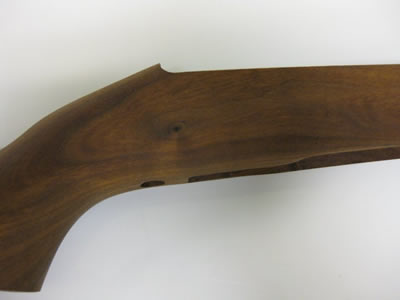
The stock arrived essentially unfinished, but this will easily be corrected with brown shoe polish, black shoe polish, a heat gun, and some tung oil to seal this color in. It's expected to match the original handguard, and should take around 2 hours to complete the finishing process.
Unfinished Walnut compared to original finish handguard - easily fixed to match
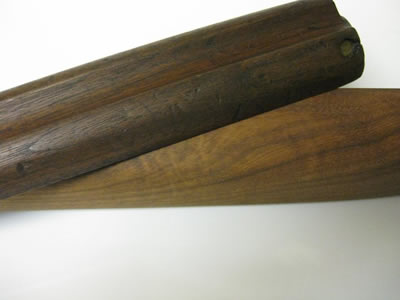
Fit:
Below are the photos of the stock with the rifle installed. The stock is still lacking a finish at this point - with these photos just showing that the rifle does fit in the stock. There is something to be said for it being a "drop in" stock.
Assessment:
In conclusion, it looks like manufacturers are finally listening to the collecting community and putting out a quality reproduction stock in early style. Most other reproduction stocks are the later "low wood", "oval oiler" type. Unfortunately, these are very rare in Normandy images, and the reenacting community is flooded with their use. At a shade under $70, this stock is an affordable alternative to a $200+ original. I'd quickly purchase again.
|